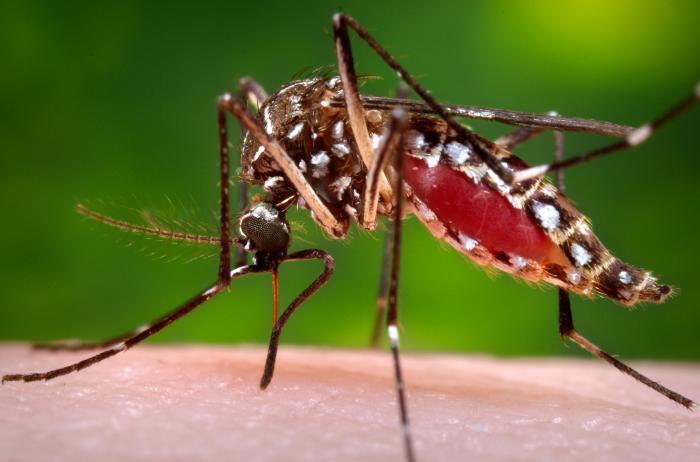
The dengue fever outbreak that caused officials in Puerto Rico to declare a health emergency Monday has not bitten the Virgin Island yet, USVI health officials said Thursday — but it was likely on the way.
Outbreaks or dengue, a mosquito-born illness that often causes fever, fatigue, a rash, and extreme joint and muscle pain, usually occur every 10 years or so, said Territorial Epidemiologist Esther M. Ellis.
“Our last one was 12 years ago. Additionally, with upticks in neighboring regions and recent heavy rainfall, which provides additional breeding opportunities for mosquitoes, it’s highly likely,” Ellis said. “We have seen some cases but are not yet in an outbreak.”
Ellis said USVI officials were working closely with the Puerto Rico Health Department as well as the Centers for Disease Control’s dengue branch, conducting surveillance to find out when local cases rise and respond accordingly.
Puerto Rico reportedly confirmed 549 dengue cases — including 340 dengue-related hospitalizations — so far this year. Fewer than 1,300 Puerto Ricans were confirmed to have dengue in all of 2023. As not all cases are reported, the true breadth of the outbreak could be much larger. Also, the CDC estimates only about 25 percent of people with dengue will get sick.
Sometimes symptoms are mild; about 1 in 20 people will have severe symptoms that last months, could require hospitalization, and may even cause death. Sick people were advised to drink water, rest as much as possible, and treat symptoms with acetaminophen — Tylenol — not aspirin or ibuprofen — Advil.
The culprit is the Aedes aegypti, a black and white spotted mosquito also known to spread yellow fever, chikungunya, and Zika. They usually bite around dawn and dusk. The CDC estimates nearly half the world’s population lives in areas where this mosquito thrives.
Virgin Islands health officials were increasing surveillance efforts, conducting mosquito surveillance and testing pools of mosquitoes for the presence of the virus, and testing potentially sick people, Ellis said. The broader community is an important partner.
“Everyone can help control mosquitoes both inside and outside their homes. Remove standing water where mosquitoes lay eggs,” she said.
The CDC recommends anywhere a mosquito might lay an egg — damp areas or standing water like in discarded tires, buckets, planters, toys, pools, birdbaths, flowerpot saucers, or trash cans — be emptied and scrubbed, turned over, covered, or thrown weekly. They also recommend tightly covering water storage containers like buckets, cisterns, and rain barrels so mosquitoes cannot get inside to lay eggs. For containers without lids, use wire mesh with holes smaller than an adult mosquito.





